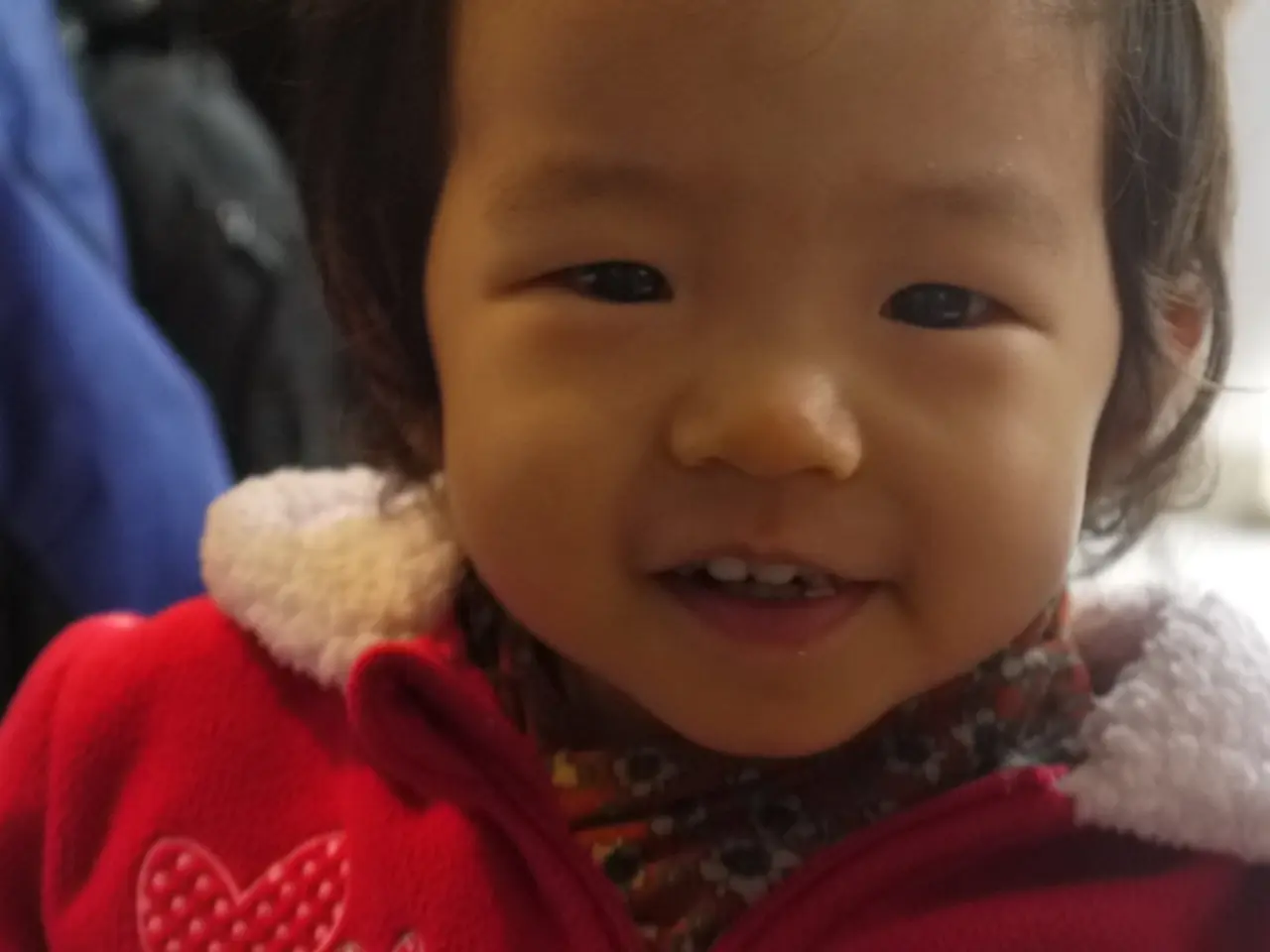Developmental Milestones for Infants Aged 0-3 Months in Nigeria: A Comprehensive Guide
In the first three months of a baby's life, they experience rapid growth and development in various areas. Here, we provide a comprehensive guide for Nigerian parents on the key developmental milestones and tips to support their baby's growth.
Physical Development (0-3 months):
Babies start to show progress in holding their heads up briefly when lying on their tummy, typically gaining better head control by 3 months. Newborns gradually improve visual tracking; by 3 months, babies can focus on and follow objects or faces for short periods and show interest in colorful and contrasting items. Around 2-3 months, babies begin to reach for and grasp objects, showing early hand-eye coordination as they observe and attempt to touch toys or fingers.
Cognitive Development:
Babies respond to sounds and start recognizing familiar voices, like their parents’, and may show curiosity by turning their head toward stimuli by 3 months. They begin basic problem-solving, such as trying to grasp toys or recognizing caregivers and their surroundings.
Communication:
Early social communication includes smiling responsively and cooing, which typically emerge in this stage. Babies may start babbling and ‘chatting’ sounds by around 3 months, engaging in vocal play and responding to interaction.
Motor Skills:
Physical milestones include improving neck strength through tummy time, which helps babies eventually roll over (closer to 3-4 months but may begin at the upper range of this period). Reflexes such as grasping and rooting are present and begin developing into voluntary actions.
Tips for Encouraging and Supporting Progress:
- Tummy Time: Regularly place baby on their stomach while awake, supported with a pillow or your hand, to strengthen neck, shoulder, and arm muscles.
- Visual Stimuli: Use colorful toys, faces, or high-contrast images to help develop visual focus.
- Social Interaction: Talk, sing, and smile at your baby to stimulate communication skills and bonding.
- Gentle Movement: Hold and sway your baby to music or gently move their limbs to encourage motor skills and rhythm sense.
- Safe Exploration: Provide appropriate toys for reaching and grasping to foster hand-eye coordination.
- Consistent Sleep Routine: At around 3 months, babies benefit from structured sleep schedules (about 15.5 hours/day total) which improve mood and developmental readiness.
By understanding these motor skill milestones and actively engaging your baby in stimulating activities, you can support their physical development during the crucial first three months of their life.
To encourage social smiles, make sure to interact with your baby through eye contact, smiling, and talking, and respond to their vocalizations and gestures. Babies improve in visual focus around 3 months, showing signs of visual development such as following moving objects with their eyes and focusing on faces. By understanding simple cues and gestures during the first three months, such as responding to familiar gestures like waving bye-bye or reaching out their arms when they want to be held, you can foster a stronger bond with your baby and enhance their ability to recognize familiar faces.
This guidance is adapted from general infant development knowledge with specifics on encouraging activities from global pediatric and parenting resources, applicable worldwide, including Nigeria.
- Nutrition plays a significant role in a baby's rapid growth and development in the first three months, so it's crucial for parents to provide a balanced diet, such as breastfeeding, to meet their baby's needs.
- Parents should be aware that emotional development begins early, and they can support their baby's emotional development by responding positively to their baby's emotions, showing affection, and providing a safe and loving environment.
- To encourage kids' education during playtime, parents can incorporate learning into activities, like teaching them colors and shapes through play using age-appropriate toys or songs.
- In terms of behavior, it's important for parents to model positive behavior for their kids, as they learn by observing their parents' actions.
- While prioritizing safety during baby's playtime, parents should ensure all toys are age-appropriate, easy to clean, and free from small parts that could be swallowed.
- As babies reach the 3-month milestone, they may start demonstrating healthier sleep patterns, so parents should establish a consistent sleep routine that considers their baby's individual needs and helps promote health and wellness.
- By understanding basic science concepts of infant development and applying them to daily parenting and lifestyle decisions, Nigerian parents can help ensure their baby's overall health and well-being.
- For the benefit of their baby's continued growth and development, parents should continue seeking information and guidance from credible resources on health-and-wellness, parenting, and early childhood education throughout the baby's first few years.




